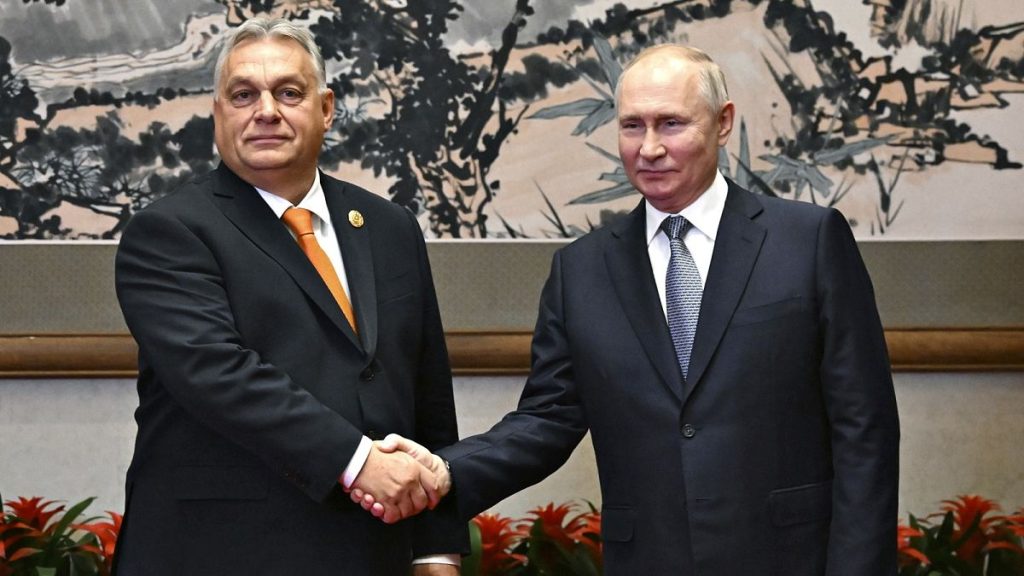Hungarian Prime Minister Viktor Orbán congratulated Russian President Vladimir Putin on his re-election, despite widespread condemnation from the European Union for the lack of democratic legitimacy in the Russian presidential poll. Orbán’s message reiterated Hungary’s commitment to maintaining close relations with Moscow, despite facing sanctions from Western allies. This move comes at a time when EU leaders are discussing military support for Ukraine amid escalating tensions with Russia.
The European Union had criticized the Russian presidential election for taking place in a restricted political space with violations of civil and political rights. Orbán’s congratulatory message to Putin was seen as a disregard for the EU’s stance and a reinforcement of Hungary’s intention to cooperate with Russia. The move also coincided with discussions among EU leaders on increasing military support for Ukraine and strengthening the bloc’s defence capabilities to deter a potential Russian attack. Orbán’s actions highlight the challenges of maintaining political unity within the EU on issues related to Russia.
Orbán’s support for Putin has raised concerns among EU leaders, with some questioning the legitimacy of the Russian election and condemning Russia’s actions in Ukraine. The Hungarian prime minister’s history of using his veto power to extract concessions and disrupt collective decisions has been compared to “Russian dolls” by diplomats in Brussels. This tactic has previously caused discord within the EU, as seen in Orbán’s delays in approving funding for Ukraine and Sweden’s bid to join NATO.
The proposal to use frozen Russian Central Bank assets to provide weapons and artillery shells to Ukraine was discussed during the EU leaders’ meeting, but it requires unanimity to proceed. Orbán’s ability to single-handedly block this proposal demonstrates the significant influence he holds within the EU. This further complicates efforts to present a unified front in response to Russia’s actions in Ukraine and other international issues.
Orbán’s actions have sparked debate within the EU about how to address Russia’s aggression and human rights violations. Some leaders have expressed skepticism about the legitimacy of the Russian election and the implications of congratulating Putin. The divide within the EU on how to handle Russia reflects broader tensions within the bloc regarding foreign policy and the balance between maintaining unity and addressing individual member states’ interests.
Overall, Orbán’s congratulatory message to Putin underscores the challenges of maintaining political cohesion within the EU, especially on issues related to Russia. The Hungarian prime minister’s willingness to support Putin despite criticism from the EU highlights the complexities of balancing national interests with the broader goals of the bloc. This latest episode adds to existing tensions within the EU and raises questions about the future of the union’s foreign policy and its ability to respond to external threats and conflicts.


